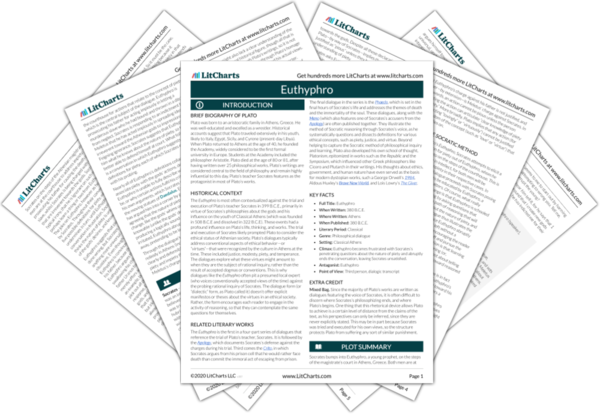Next
Summary
Euthyphro Study Guide |
Next
Summary
|
Welcome to the LitCharts study guide on Plato's Euthyphro. Created by the original team behind SparkNotes, LitCharts are the world's best literature guides.

Mixed Bag. Since the majority of Plato’s works are written as dialogues featuring the voice of Socrates, it is often difficult to discern where Socrates’s philosophizing ends, and where Plato’s begins. One thing that this rhetorical device allows Plato to achieve is a certain level of distance from the claims of the text, as his perspectives can only be inferred, since they are never explicitly stated. This may be in part because Socrates was tried and executed for his own views, so the structure protects Plato from suffering any sort of similar punishment.